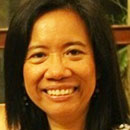They are performative political spectacles that mark governments’ achievements and outline their priorities.
The fifth SONA of President Duterte could have been a reassuring and uplifting one. We need now, more than ever, the steady and assuring voice of the Father of the Nation. We need to hear the government’s plans to fight the COVID-19 pandemic and bring the Philippine economy back to recovery.
Alas, the golden opportune moment turned to rust.
I still remember Duterte’s first SONA in 2016 soon after his elections. I had friends who joined thousands of supporters who sat on the Batasang Pambansa grounds to cheer the President. It promised to usher a new era in Philippine politics with the new President’s refreshing frankness and clear discomfort with the ostentatious and pompous rituals like SONA. He was exceptional in his ability to connect with Filipino masses tired of elite-led democracies.
Three SONAs later, that breath of fresh air turned stale and suffocating. The President twice berated Senate Minority Leader Franklin Drilon. Drilon earlier pointed out that the Dutertes themselves are an oligarchy, given several family members from three generations in public office.
He targeted Drilon for siding with the Lopezes during the ABS-CBN controversy leading to the cancellation of its franchise permits and the unemployment of its 11,000 workers. He was also targeted for being part of the corporate law firm that worked for the Ayalas, another oligarchic family that owned Manila Waterworks when the utility company became privatized.
But Drilon was just a mouthpiece and a henchman with good pedigree.
Duterte’s real targets were members of the oligarchy such as the Lopezes and the Ayalas who dared bet on a different horse during the 2016 presidential elections.
“Media is a powerful tool in the hands of oligarchs … who use their media outlets in their battles with political figures,” Duterte said in his speech before claiming he himself was victimized by the media oligarchs during the 2016 presidential campaign.
It was a harsh lesson in political vengeance Maria Ressa of Rappler learned the hard way. Reza was a former ABS-CBN executive who left during the presidency of Benigno Aquino. She was convicted for alleged reporting crimes based on new laws passed and retroactively imposed on the case.
Duterte warned the government would seize operations of utility companies, from telecommunications and broadcasting – mentioning Globe and Smart -- to water and electricity if they do not improve their services.
His warning had a chilling effect: “I might as well close all of you and we revert back to the [telephone] line. At kukunin ko iyan. I-expropriate ko. And you might not want what I intend to do to you. Kindly improve your services before December. I want to call Jesus Christ to (sic) Bethlehem. Better have that line cleared.”He also repeated his call for the death penalty which he considered essential to fighting the drug war. Eliminating drugs and dismantling the oligarchy are key to addressing the country’s problems.
SONAgalit.
On the positive side, Duterte paid tribute to frontline health workers in the fight against the pandemic. He admitted weaknesses in the government response but deflected criticism by saying no country was prepared to fight COVID-19.
Duterte critics point out that state expropriation, similar to what Marcos did after martial law declaration, could lead to these companies being passed from one set of private hands to others closer to the government. Health workers were also less forgiving for the government’s inadequate pandemic response, despite advance warning and lessons that can be learned from countries doing aggressive mass testing, contact tracing, and quarantine of suspected cases.
SONAgising.
Surprisingly, the President was silent on two things of concern to Filipinos – the Anti-Terrorism Act and plans for Charter Change (Cha-Cha) that will pave the way for a federal system of government. These two things were among the litany of woes at the Alternative SONA held along the University of the Philippines main corridor.
Thousands of protesters wearing face mask and observing social distancing attended the Alternative SONA and its smaller counterparts nationwide. The colorful parades and eloquent speakers at the rally and on the widescreen criticized the government’s pandemic efforts. They railed against the lack of basic social services and infrastructures and the continued anti-drug war that devastate poor neighborhoods.
They opposed taxation policies that hurt the poor and benefit the rich. They bemoaned huge government loans requiring decades to repay and siphon much needed financial resources away from basic social service provision.
SONAgkaisa.
SONAgkaisa was the battlecry of the protesters who came from the ranks various opposition groups associated with “the reds” (national democrats), “the yellows” (liberal social democrats), “the rainbow” (LGBTQ), and “the pinks and purples” (women’s groups).
Unlike Duterte supporters who avoided the streets to support their hero’s SONA, the opposition’s equally performative display of political solidarity was determined to raise public awareness of the regime’s dark side.
True, all is not well in Duterteland.
Sadly, we need much more than these ritualistic political solidarity displays to change the systemic and structural ills of Philippine society that were persistent before Duterte.
In fact, Duterte’s ascent to power was simply an outcome of those ills.
SONAgdusa.



